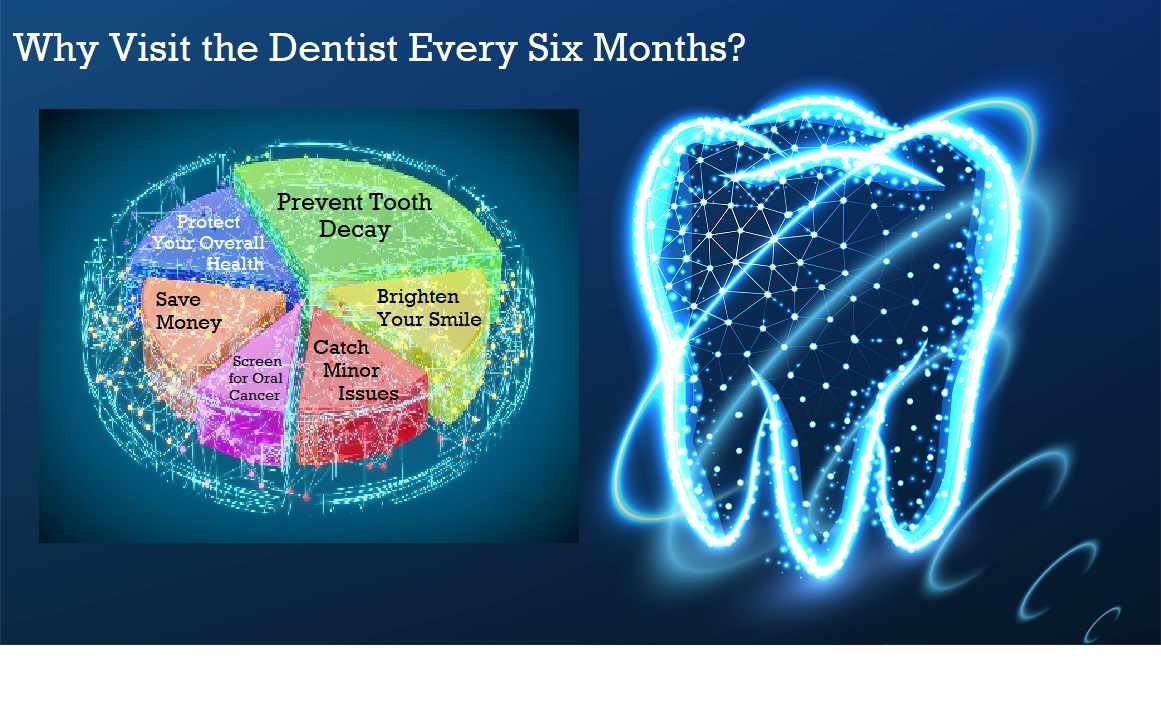
Have you ever wondered why you should visit the dentist every 6 months?
Here are a few reasons to keep you on track and stay on top of your oral health.
Prevent Tooth Decay
Even the most meticulous brushers and flossers need to have their teeth cleaned professionally by a dentist twice a year. Plaque has a tendency to build up in hard-to-reach places over time and having it frequently removed will help prevent tooth decay and more serious issues like gum disease.
Brighten Your Smile
Getting your teeth cleaned regularly is a great way to keep your smile beautiful and give your self-confidence a boost.
Catch Minor Issues
By getting routine dental exams, you can help ensure that simple problems (such as a filling), don’t turn into more complex problems (such as a root canal). Furthermore, some dental work can break down over time, so it’s important to keep an eye on any previous work that was completed. Being proactive typically saves you money and affords you more treatment options.
Screen for Oral Cancer
One of the most important aspects of a routine dental check-up is the oral cancer exam. Oral cancer screenings look for signs of cancer in your mouth. The lining of your cheeks, gums, lips, tongue, floor and roof of your mouth will be checked. Early detection will give you the best chances for successful treatment and recovery
Save Money
By visiting the dentist twice a year, you’re more likely to uncover – and address – potential problems before they require more costly and invasive treatments. Just like you routinely take your vehicle in for an oil change to prevent large or expensive repairs, you should visit your dentist regularly to prevent painful or expensive treatment.
Protect Your Overall Health
Your oral health can impact other areas of your body. Growing research has linked oral health with cardiovascular health including heart disease and strokes. Similarly, the symptoms of some systematic diseases such as diabetes, lupus and rheumatoid arthritis might first appear in your mouth. Should anything worrisome be identified during your routine dental visit, your dentist can bring it to your attention and recommend that you see your primary care physician.
Leave a reply →